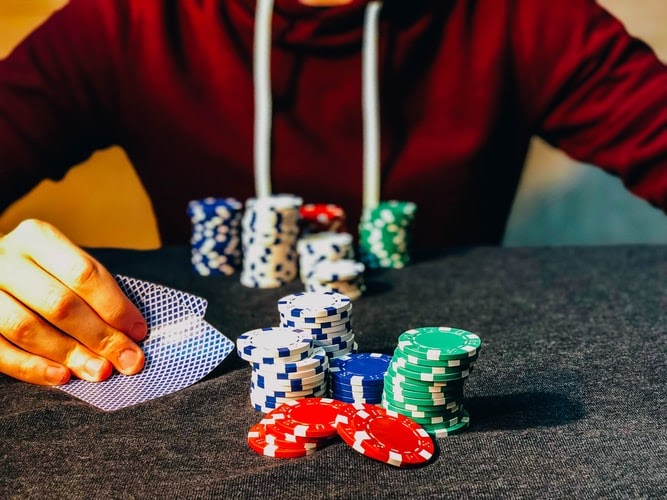In the pursuit of reclaiming control over one’s financial and emotional well-being, the journey to overcoming a gambling addiction requires strategic steps and unwavering commitment.
By recognizing the detrimental impact of compulsive gambling MMC casino, seeking support from trusted individuals or professionals, and establishing firm financial boundaries, individuals can embark on a path towards liberation.
This article delves into practical approaches and mindful strategies to empower individuals in breaking free from the grips of gambling addiction and embracing a life of financial stability and well-being.

Recognize the Problem
Recognizing the problem of gambling involves acknowledging the negative impact it has on one’s life and relationships best online casino Malaysia. It is crucial to confront the reality that excessive gambling can lead to financial turmoil, strained personal connections, and emotional distress.
Freedom seekers understand that true liberation comes from being able to confront and address issues that hinder personal growth and well-being. By acknowledging the detrimental effects of gambling, individuals can take the first step towards reclaiming control over their lives.
This acknowledgment signifies strength and a willingness to break free from the cycle of addiction. It opens the door to seeking help, implementing change, and ultimately regaining autonomy over one’s actions and choices.
Seek Support
Seeking support from trained professionals and support groups is essential in overcoming the challenges associated with gambling addiction. Trained therapists and counselors can provide personalized strategies to address underlying issues driving the addiction. Support groups offer a sense of community and understanding from individuals facing similar struggles. These resources can help individuals develop coping mechanisms, learn to manage triggers, and provide a safe space to share experiences.
Support networks also offer accountability and encouragement throughout the recovery process. By seeking support, individuals gain access to a wealth of knowledge and guidance that can empower them to break free from the cycle of gambling addiction and work towards a healthier, more fulfilling life.
Set Financial Limits
To effectively curb gambling habits, it is crucial to establish clear financial limits. Setting boundaries on how much money can be spent on gambling helps maintain control and prevents excessive losses.
Begin by determining a specific amount that is affordable to gamble with, separate from essential expenses. This designated gambling fund should be an amount that, if lost, will not impact your financial stability or obligations.
Consider using tools like pre-paid cards or setting up separate bank accounts to enforce these limits effectively. Regularly review your finances to ensure adherence to these limits and make adjustments if necessary.

Find Healthy Alternative Activities
Engage in activities that promote mental and physical well-being as healthier alternatives to gambling. When seeking to break free from the cycle of gambling, it’s essential to redirect your focus towards activities that enrich your overall health.
Consider engaging in regular exercise such as running, yoga, or swimming to boost your physical well-being and release endorphins that can positively impact your mood. Additionally, exploring mindfulness practices like meditation or deep breathing exercises can help calm the mind and reduce stress, providing a healthy outlet for emotional regulation.
Pursuing hobbies like painting, gardening, or playing a musical instrument can also offer a fulfilling way to spend your time and cultivate new skills. By replacing gambling with these healthier alternatives, you can work towards a more balanced and joyful lifestyle.
Practice Self-Care and Mindfulness
Practicing self-care and mindfulness is essential for individuals looking to overcome gambling addiction and cultivate a more balanced lifestyle. Engaging in self-care activities such as exercise, meditation, or hobbies can help reduce stress and anxiety, which are common triggers for gambling behavior.
Mindfulness practices, such as deep breathing or staying present in the moment, can assist in breaking the cycle of impulsive gambling thoughts. Setting aside time for self-reflection and introspection allows individuals to understand their motivations for gambling and develop healthier coping mechanisms.
Conclusion
In conclusion, addressing gambling addiction requires recognizing the issue, seeking support, setting financial limits, engaging in healthy alternative activities, and practicing self-care and mindfulness.
By taking these steps, individuals can work towards overcoming their gambling habits and regaining control of their lives. It is important to seek help and make positive changes to prevent further harm to oneself and others.

